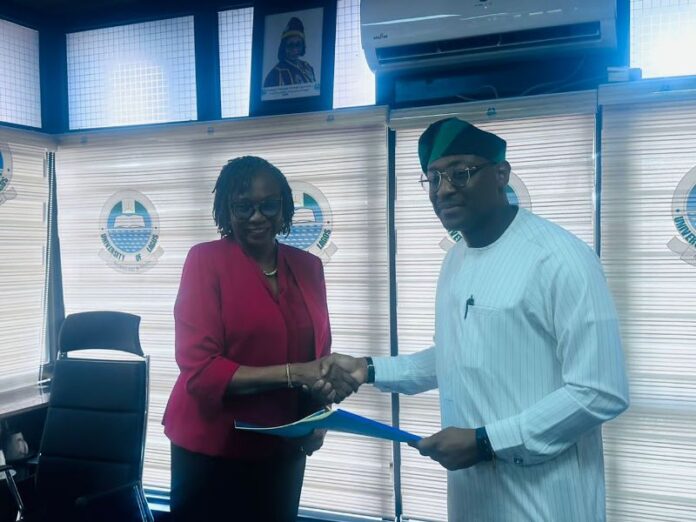The Nigerian Safety Investigation Bureau (NSIB) has renewed its memorandum of understanding (MoU) with the University of Lagos on the deployment of metallurgical science laboratory at the Nnamdi Azikiwe International Airport (NAIA), Abuja.
The MoU initially signed in July 2018 between the NSIB and the university was renewed by the director-general, Capt Alex Badeh Jr, and the vice-chancellor of the University of Lagos, Prof Folasade Ogunsola.
The agreement signed with the university at that time entailed relocation of some of the equipment in the laboratory to the institution.
Due to some logistics, the equipment had not been moved since the two parties signed the MoU, thereby prompting the new leadership of the NSIB to renew the pact.
During the signing ceremony at the university, Badej Jr stated that the bureau would fast-track the relocation of some of the equipment in the laboratory for the use of the institution.
He said the initial agreement was not followed up due to some logistics reasons, disclosing that on assumption of office he met the MoU on ground which required renewal.
“The initial one was signed in 2018. And between then and now, I know there have been subsequent meetings between UNILAG and the NSIB, but there was no real follow through for whatever reasons, you know, logistics or political reasons.
“And when I took over, I met the MoU there needing a renewal, and I saw the lack of movement with the last MOU. So we discussed internally.
“We need the University of Lagos expertise and other academia in Nigeria with the NSIB. But we have some equipment that we can’t use at present.
“So we just thought collaboration is the way to go. There’s no reason why these things are sitting there and you have a capable hand at universities all across. So we went back to the University of Lagos, which we’re starting with.
“You know, we have positive steps after this initial meeting. In two weeks, we’ll have some professors from the department in Abuja as well, come and consult again just to update their past diagnosis, which was four or five years ago? As you know, science is constantly evolving, and things that were attainable then aren’t now. So we know there are some changes and there will be new equipment we need and, you know, just updates to everything.
“So this is the first step in that direction. Once they visit and they give us their needs and we share, exchange our ideas, we’ll take it forward to our superiors and try to move forward with this collaboration.
“Of course, we know the university needs funding. We too as an agency, need funding, so we’ll try to collaborate together, try and get that funding to move us in a positive direction.
“You might not know and now even to test our engines. It’s called an engine tear down. When we have a crash or an accident, we have to send them abroad. We’re just in the process of sending something to Kenya that’s in Africa,” he said,
In his remarks, the vice chancellor said the equipment would help the university in carrying out its mandate of teaching and research.
She further said that collaboration is important and that both the university and the NSIB “are desirous of moving the MoU forward in a collaborative engagement that would help both organisations and the country in general.
“We are intentional to make sure our research is demand-driven. We want to move Nigeria forward as a university and we want you to challenge us to come up with solutions.
“Collaboration is extremely important in shaping the future. The collaboration will not only be beneficial to us as a university but to you (NSIB) as well and propel the manpower Nigeria needs to support the future. We have the capacity but we need support to leverage on the capacity,” she said.
Also speaking, the dean, faculty of engineering Prof Samson Adeosun urged the NSIB leadership to expedite action on the movement of the equipment.
He said the university was anticipating that the equipment would be relocated soon after the initial agreement.



























































